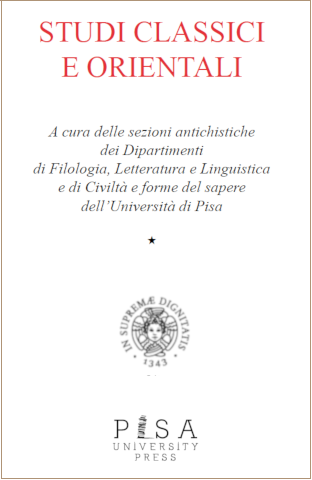‘By the goose, By the Ram’. Socrates’ other unusual oaths
Abstract
One element of the uniqueness that sets Socrates apart as a literary fi gureis constituted by his unusual oaths. Alongside ‘by the dog’ knownfrom Plato, writers in the Roman imperial period report that Socrates alsoswore by the goose, plane tree, ram, rooster, oak, goat, and even ‘anyrandom stone’ (Augustine). These reports cannot all be branded late inventions,for, as Andreas Patzer has argued persuasively, Polycrates hadattacked Socrates’ unusual oaths in his Accusation of Socrates. Polycratesin turn must have drawn from writings of Socratics. Our late reports,then, stand to preserve precious deposits from lost Socratic dialogues.Patzer’s study, however, is vitiated by his assumption that all Socrates’oaths by natural entities stood in Polycrates, and before him, in Socratic dialogues.The present paper therefore examines one by one the claims of eachoath formula. ‘By the plane tree’ is likely to be Polycrates’ corruption of aproto-version of Plato’s Phaedrus. ‘By the goose,’ however, makes a strongclaim to a fourth-century origin independent of Plato and Xenophon—‘by the ram,’ less so. Some Socratic writer, possibly, Antisthenes, depicted the‘oaths’ aspect of Socrates’ unique identity differently from Plato.The present paper has three further aims. First, previously publisheddiscussions of testimonia to Socrates’ unusual oaths are incomplete andinaccurate. I therefore report all testimonia up into the Renaissance.Second, I set out what can be established, and hypothesized, about theirtransmission. It is a good guess that reports of some of oaths reachedlater scholars via Hermippus of Smyrna and Didymus Chalcenterus.Finally, Socrates’ unusual oaths serve as exempla of piety or impiety,as his unique identity is appropriated in controversies between Greekphilosophy and rival spiritual systems like Judaism and Christianity.djm12@nyu.edu
Fascicolo
Sezione
Articoli


